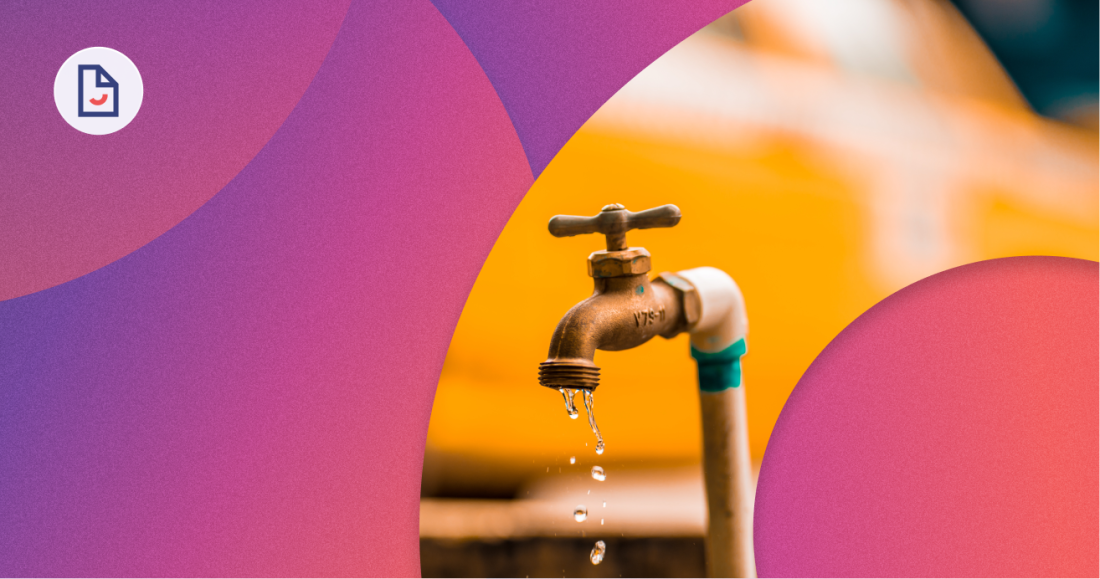
Rental water damage: what to do?
Do you wake up with your feet in the water? Is the paint blistering and damp spots invading your walls? Don't panic, take a deep breath: the insurance will take care of everything. Yes but which one? Yours, that of your landlord, that of the co-ownership? Who to contact and where to start? We give you the procedure to follow to manage water damage as calmly as possible when you are a tenant.
Who is responsible for water damage: the tenant or the owner?
Everything will depend on the origin of the water damage. Let's take the case where the starting point of the disaster is your home:
- If the water damage is linked to the dilapidation of the accommodation: it is the responsibility of your landlord who will be engaged. If a leak or flood occurs due to a plumbing element that has worn out over time, it is therefore his insurance that will pay for the repairs and compensation for any damage.
- If the water damage is related to the routine maintenance of the accommodation: it is your responsibility that will be engaged. As a tenant, you are responsible for minor repairs and routine plumbing maintenance. If it is the poor condition of a seal, or a clogged sink for example, which are the cause of the water damage, your multi-risk home insurance will be activated.
Your home can also be affected by water damage whose starting point is not your home:
- If the water damage comes from a neighboring dwelling: contact your neighbour. Its insurance, or that of its owner, should be able to compensate you.
- If the water damage comes from the common parts of the building (leakage from the collective heating, the waste water downpipe, etc.): it is the co-ownership that is responsible. It is therefore the insurance of the building that will come into play.
- If the water damage is caused by work in the building: it is the professional insurance of the craftsman responsible for the water damage who will be responsible.
Even if it is not your insurance that compensates you for the damage to your accommodation, you will have to declare the loss to it. It will get in direct contact with the insurance responsible for managing the claim.
Tenants: the key steps to solve your water damage
Step 1: I identify the origin of the leak to limit the damage
The first instinct to have is to cut off the water supply at the meter. If the leak is coming from your home, this will allow the water to stop flowing.
If the leak does not appear to be coming from your home, alert your neighbors to find out if they too are affected, or if they might know where the leak may be coming from.
Did your neighborhood survey turn up anything? You can turn to the syndic of your building, who can help find the origin of the water leak.
Step 2: I save the furniture
You can :
- start by moving all the furniture and equipment that you can store elsewhere;
- mop up the water as well as possible and plug the leak if you have spotted it;
- ventilate the room.
Step 3: I contact my insurance
Ideally, it is recommended to report the claim within 24 hours, but you have 5 working days to do so. This declaration is mandatory, even if the leak does not come from your home.
For rapid coverage by your insurance, you can already prepare:
- your home insurance contract number;
- a description of the loss, damaged property and damage to your home (on the walls, floors, etc.);
- if you have any, the supporting documents proving the purchase and the value of the damaged goods: invoices, photos, etc. ;
- if the water damage started from your home and affected some of your neighbours: details of the damage to their home, and ideally joint reports completed with your neighbours.
